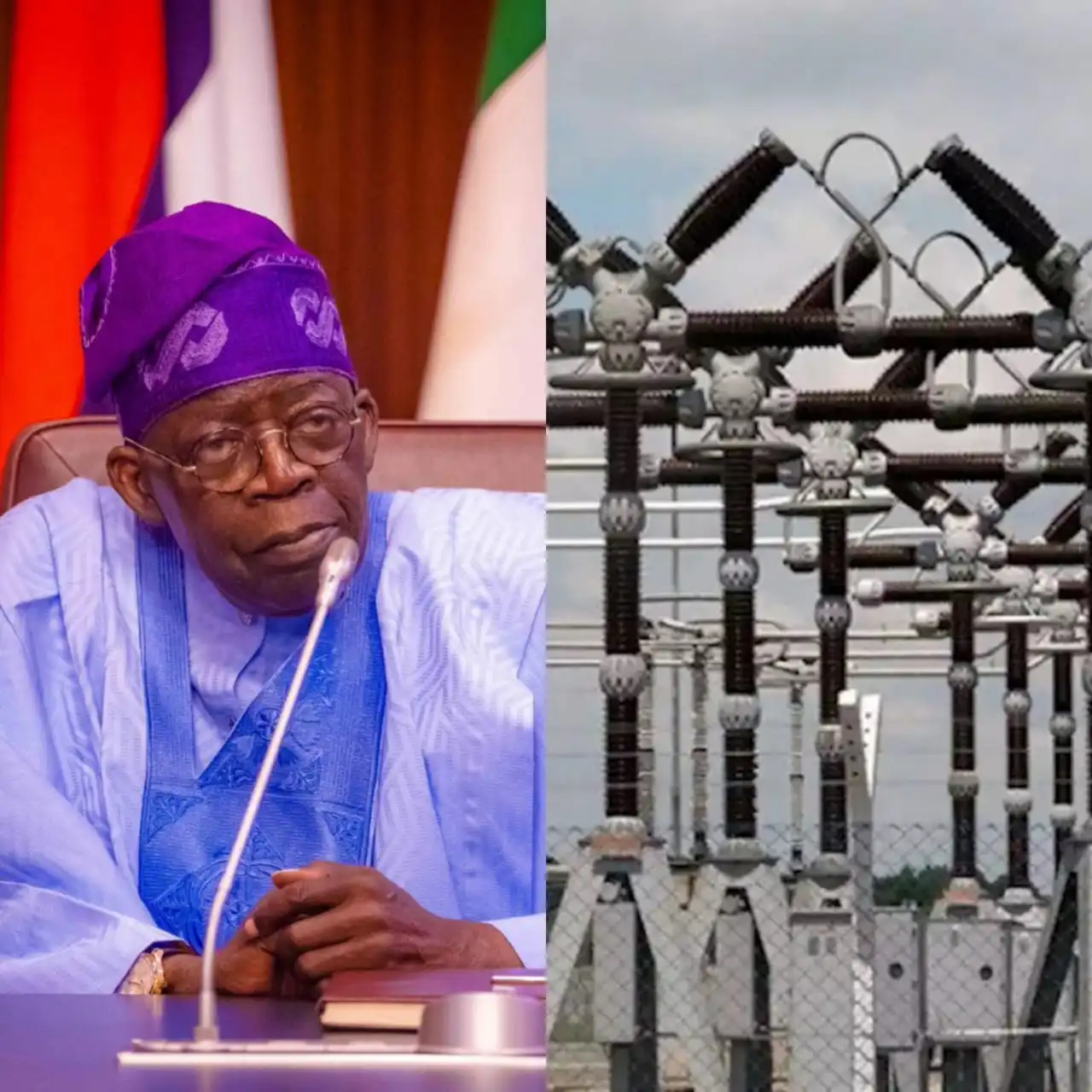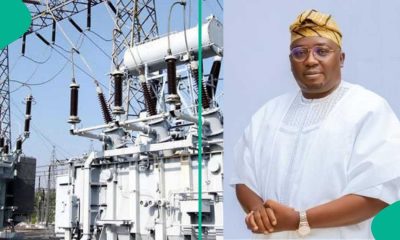Comments and Issues
Electricity Tariff Jack-up: Time for Bola Tinubu to come back home
Published
2 years agoon

On the surface, President Bola Ahmed Tinubu seems eager to offer an ambitious and workable alternative economic strategy. But it’s a pity that each time he launches out from the sidelines trying to take the centre stage, his underwhelming governance by palliatives usually turns out to be so badly thought out.
Tinubu never had an economic agenda during campaigns. He didn’t present any manifesto either. So, when the World Bank and International Monetary Fund(IMF) presented what looked like economic blueprint to him, without studying the economic and social impacts of the document on Nigerians, he grabbed it and ran with it. And this is why the Nigerian situation is the way it is today under his government.
This is the case with the federal government today implementing an IMF report by removing energy subsidy to address poverty and inequality; the same poverty for which social safety net programmes and conditional cash transfers had been instituted and yet to produce any visible positive impact on the lives of the citizenry.
The government removed fuel subsidies because they claim it is being abused by a subsidy cabal that rakes in billions at the expense of the formal economy.
This same government removed forex subsidies because they claim it is being abused to benefit only a section of our elites who had access to subsidized forex.
Vividly, these two policies create mass impoverization and the worsening of the economic situation across the country. But because they are somewhat justifiable from an economic policy perspective, many people give the government the benefit of doubt.
Now, what’s the justification for removing electricity subsidy? They say government cannot afford to keep spending billions of naira on energy subsidies.
As claimed, the federal government before now subsidized 67 percent of electricity costs, and now wants a transition from a subsidy-driven pricing model to a regime that encourages sustainable investment.
Already, higher education subsidy is gone with the so called student loan program, with many young Nigerians likely to drop out of school due to costly tuition fees.
We are not talking about healthcare, water supply, and social welfare. Nigerians have long given up on these. They have accepted to live with their poverty and till their lands in peace. But that peace has also eluded them, considering the spate of insecurity bedevilling ordinary Nigerians in their various farming communities.
The funny thing is, President Tinubu was against these same policies 10 years ago when he was in opposition. What has now changed?
Now the only solution Tinubu’s government can think of is distributing food and cash handouts to an insignificant number of the poor in the name of palliatives. The so-called palliative can only reach infinitesimal number of hungry Nigerians who go to sleep every day without the slightest clue of how and where the next meal will come from.
Nigerians do not need palliatives. Pay workers living wage and they will take care of themselves. We do not need Friends of Jagaban Initiative running around the country distributing palliative instead of coming up with genuine ideas on how to curb inflation and end the unending circle and circus of corruption ravaging the country.
Absolutely, nothing could possibly substitute a productive manufacturing -based economy. Creating jobs, stabilizing prices of goods, foods inclusive, lowering inflation rates etc., these are all quick fix short term measures this government could have been pursuing to ameliorate the hardship in the country rather than throwing money around in the name of palliatives.
The present running round and round in vicious circles is all deception because it’s nothing but movements without visible progression.
It is neither here nor there the claims that the federal government pays a huge sum ($2.6bn) in energy subsidy, and that the Discos are in most cases unable to maintain a financial balance due to Aggregate Technical Commercial and Collection Losses and fluctuations in gas price given external shocks and volatilities. But wait! Whose narrative is that, is it not government and Discos? Trust or rather mutual suspicion has become a big issue in the governance of this country between the rulers and ruled.
So basically, what use is the government to ordinary Nigerians? What then is the government willing to spend money on? Frivolous luxuries of those in power? Of what use is government saving money if not to spend in a way that ameliorate the suffering of the citizenry? Show me any serious country in the world, from the most capitalist to the most socialist, without some form of energy subsidies during economic crisis?
China has been the biggest subsidizer of energy at 2.2 trillion USD in subsidies in 2020.
And on June 8, 2023, the government of the United Kingdom said that it has paid almost 40 billion pounds ($50 billion) in energy subsidies since it began to help households and businesses cope with the surge in power bills after Russia’s invasion of Ukraine on July 8, 2023
Italy approved $5.4 billion package to soften energy costs on March 28, 2023.
According to the 2 May 2019 International Monetary Fund (IMF) report, in 2015, Canada paid US$43 billion in post-tax energy subsidies which represents 2.9 percent of the GDP and an expenditure of US$1,191 per capita.
Energy subsidies jumped to $15.6 billion in fiscal year 2022 from $7.4 billion in fiscal year 2016 in United States of America.
In fact, all seven most advanced economies of the world, the G7 subsidize electricity in their various countries. All of them.
It’s on record that Germany budgeted 4 billion Euro (€4bn) to subsidize electricity for its industries.
Between 2020 and 2021, the government of South Africa spent $10.4bn on subsidizing electricity from fossil fuel to hydropower etc.
These are advanced economies yet their various governments subsidize electricity or is Nigerian government saying that in US, China, UK, India, Canada, Italy even Egypt and South Africa etc. that their governments do not subsidize power? Why is the Nigerian case always different?
A vivid comparison of electricity tariffs and minimum wages in Nigeria, South Africa and Canada: Electricity in South Africa is N147 per kWh, in Calgary, Canada it is N122 per kWh, in Nigeria it is N225 per kWh. Minimum wage in South Africa is N312,000. Minimum wage in Calgary is N2.3 million. Minimum wage in Nigeria is N30,000. What a country?
All these countries are not foolish and we alone cannot claim to be the only wise one. They are doing it to protect local industries mainly and we then buy finished goods from them and our local currency keep falling when we are also supposed to protect and promote local production for domestic consumption and exportation.
It is inhumane for the Nigerian government to buy into this unfortunate scamming of the citizenry by implementing these World Bank/IMF Structural Adjustment Programme (SAP). It never worked for the good of the people and if did not work before, this new foray is also not going to work for the good of the country. Mark my word!
(IFEANYI IZEZE writes from Abuja: [email protected]; 234-8033043009)
Trending

 Health7 days ago
Health7 days agoFOI data show thousands of heart failures reports linked to AstraZeneca COVID-19 vaccine

 Football1 week ago
Football1 week agoChampions League: 12 Clubs knocked out as group phase ends

 News1 week ago
News1 week agoTinubu approves purchase of 2 new satellites to strengthen Nigeria’s digital infrastructure

 Trends2 days ago
Trends2 days agoTonto Dikeh reunites son with Churchill after decade-long split

 Latest19 hours ago
Latest19 hours agoYoruba film industry mourns as popular actress aunty Ajara passes away

 Health1 week ago
Health1 week agoInvestigation uncovers industrial-scale counterfeit hub in Lagos’ Ojo Barracks

 Crime7 days ago
Crime7 days agoUK Court hears digital, financial evidence in Diezani Alison-Madueke corruption trial

 Business1 week ago
Business1 week agoDeeper issues behind Nigeria’s repeated grid collapses —Experts

